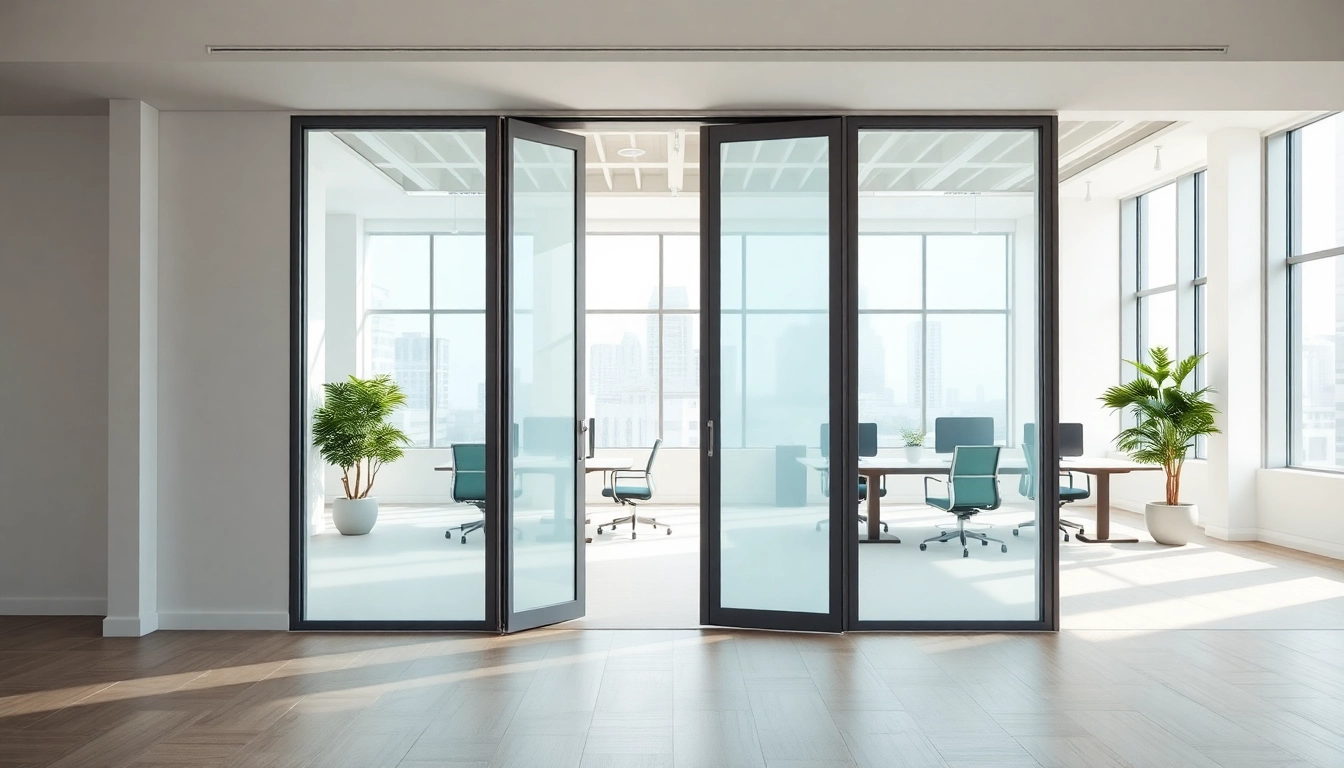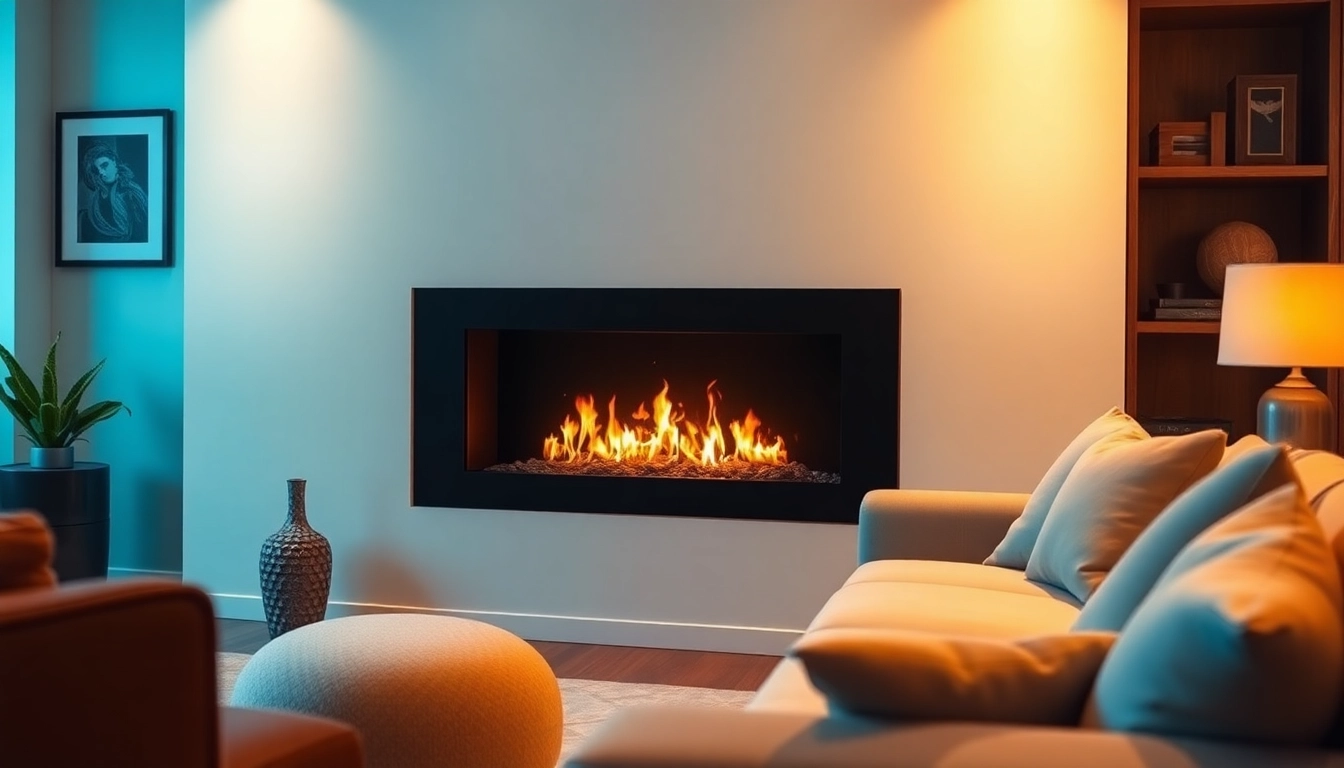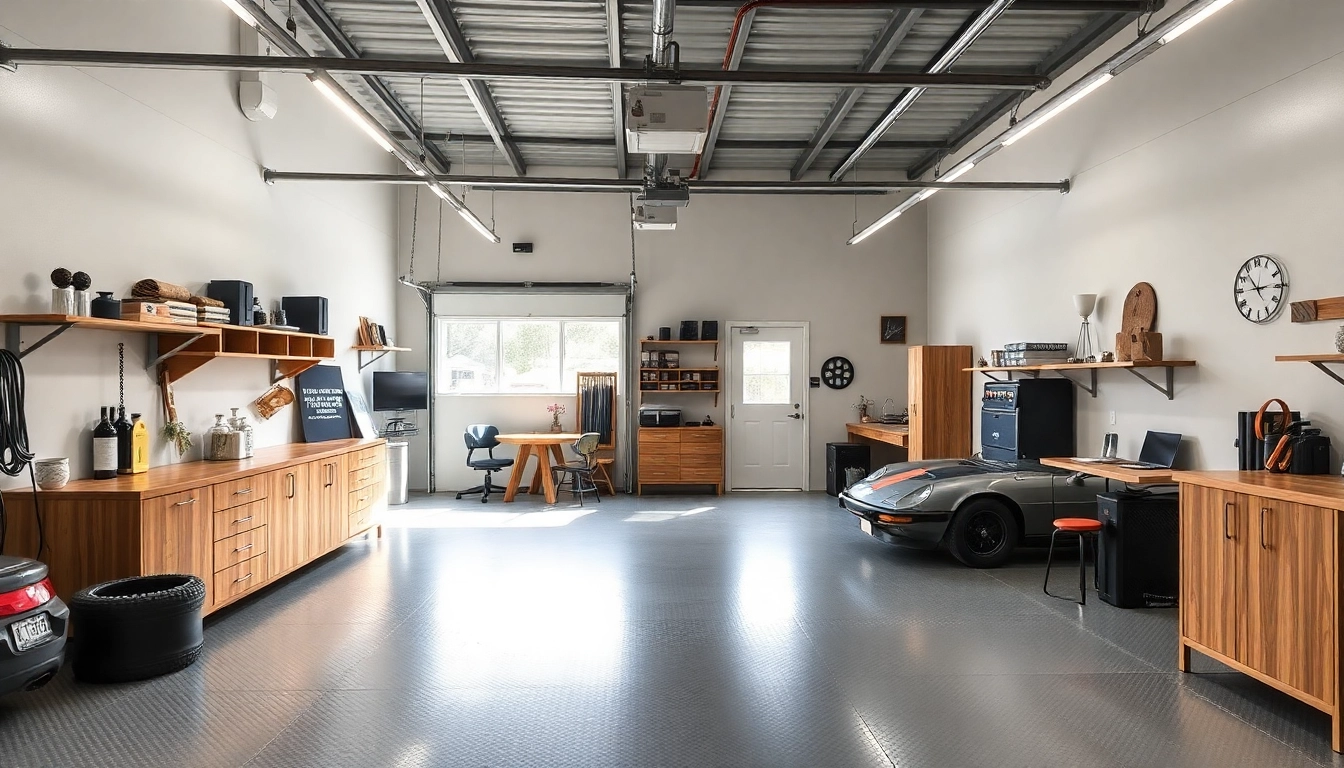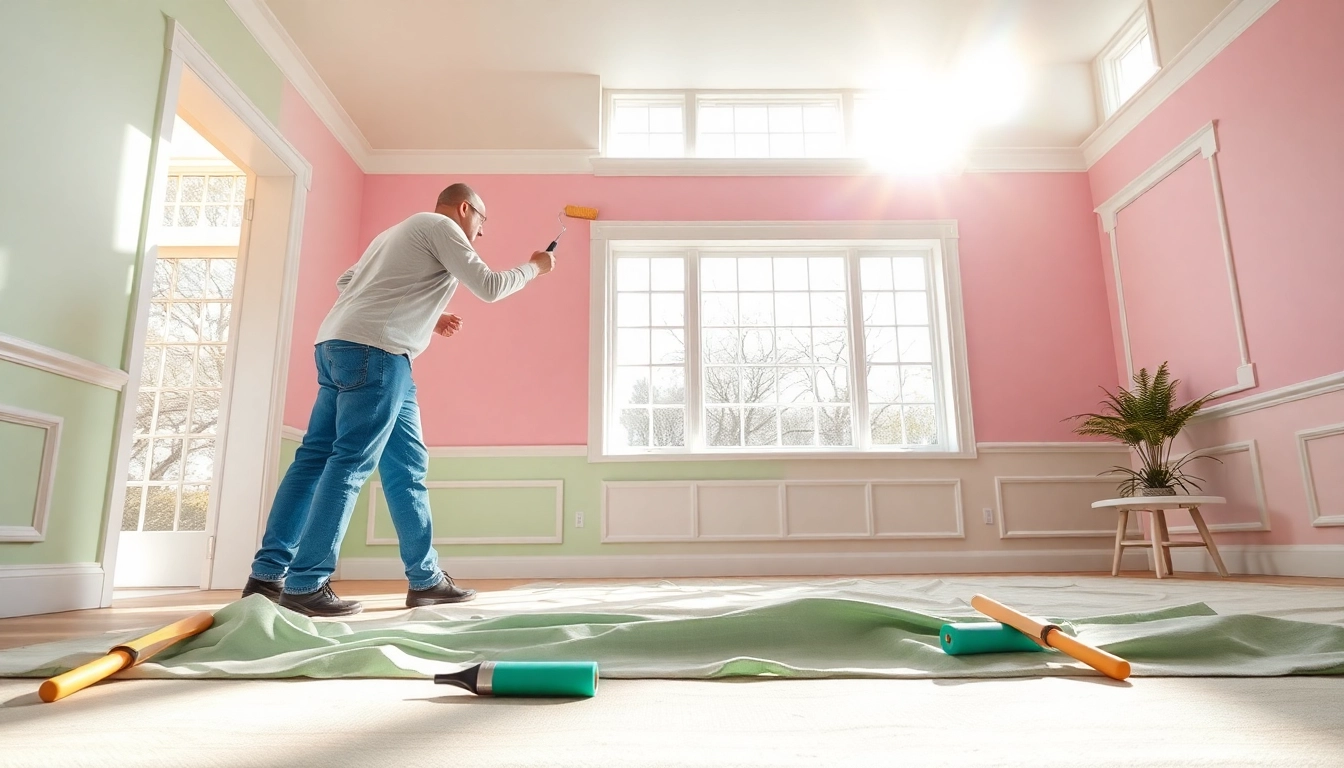Understanding Folding Partition Walls
What is a Folding Partition Wall?
A Folding Partition Wall is an innovative architectural solution designed to create flexible and adaptable spaces. Unlike traditional walls, folding partitions can be easily opened and closed, allowing for the efficient division of large areas into smaller, more functional segments. These walls are typically constructed from lightweight materials and can glide on tracks or fold into compact units, permitting the full utilization of available space. As space requirements change—whether for meetings, events, or office configurations—these partitions provide an agile response to needs without requiring permanent alterations to the architecture.
The Benefits of Using Folding Partition Walls
Folding partition walls offer numerous benefits that make them a favored choice in both residential and commercial settings:
- Space Efficiency: They enable effective use of space by allowing rooms to be divided or opened effortlessly as needs change. This efficiency is crucial in environments like offices, conference centers, and schools.
- Acoustic Control: Many folding partitions come equipped with soundproofing capabilities, which help to maintain privacy and minimize distraction in busy areas.
- Aesthetic Flexibility: Available in various designs, finishes, and colors, these partitions can enhance the aesthetic appeal of a space while still fulfilling functional requirements.
- Cost-Effective: Utilizing folding partitions can be more economical than remodeling or building new walls, as they often require less construction work and can be reused or repositioned as needed.
- Quick Installation: Unlike traditional wall systems that may take weeks to erect, folding partitions can often be installed in a matter of hours, minimizing downtime.
Common Applications for Folding Partition Walls
Folding partition walls are incredibly versatile and can be utilized in a variety of settings, including:
- Corporate Offices: For creating temporary meeting rooms or collaborative spaces that can quickly adapt to different team sizes.
- Educational Institutions: Classrooms that can be adjusted for large lectures or small group discussions, enhancing the learning environment.
- Event Venues: Facilities that require variable space configurations for different events, from weddings to corporate functions.
- Hospitality: Hotels and restaurants can use folding partitions to create private dining areas or banquet spaces.
- Healthcare: In hospitals, these walls can be employed to create private examination areas or recovery rooms within a larger ward.
Choosing the Right Folding Partition Wall
Factors to Consider Before Purchase
When selecting a folding partition wall, several vital factors should be considered to ensure it meets your specific needs:
- Space Dimensions: Measure the space where the partition will be installed to determine the size and style of the folding wall needed.
- Usage Frequency: If the partition will be moved or adjusted frequently, consider options that offer ease of use and durability.
- Acoustic Requirements: Depending on the nature of the space, choosing a model with adequate sound insulation should be a priority to ensure privacy.
- Budget: Assess your budget not only for purchase but also for installation and maintenance costs associated with the partition.
- Design Preferences: Ensure the design complements your existing décor and meets any aesthetic aspirations for your space.
Material Options for Folding Partition Walls
The materials used in the construction of folding partition walls are a critical aspect that influences functionality, appearance, and cost:
- Fabric: Lightweight and easy to move, fabric partitions are generally less expensive and suitable for temporary solutions.
- Wood: Provides a sturdy option that lends warmth and sophistication to interior spaces.
- Glass: Offers a modern aesthetic and allows natural light to permeate, but can be more expensive and requires considerations regarding privacy.
- Composite Materials: Often used for their balance of durability and aesthetics, composite walls can be tailored to fit various design needs.
Design Choices and Aesthetic Considerations
When selecting a folding partition wall, design choices can greatly impact the atmosphere of a space. Consider the following:
- Color Schemes: Choose colors that complement or contrast with existing decor to create visual interest.
- Finishes: From matte to high gloss, finishes can affect the room’s light dynamics and overall mood.
- Customization: Many manufacturers offer bespoke options, allowing you to fit your specific design requirements.
- Brand Identity: In commercial settings, partitions can be branded with logos or company colors for a professional touch.
Installation and Maintenance of Folding Partition Walls
Professional Installation vs. DIY Installation
When it comes to installation, businesses and homeowners can choose between hiring professionals or attempting a DIY approach. Here are the pros and cons of each:
- Professional Installation:
- Benefits include expert knowledge that ensures proper installation and optimal function.
- Guaranteed safety and adherence to building codes minimize liabilities.
- Minimal disruption to existing space can be achieved.
- DIY Installation:
- Cost-effective for those who have the ability and time to perform installations.
- Gives homeowners a sense of accomplishment and personalization.
- Can be risky if proper techniques aren’t followed, potentially leading to improper installation or damage.
Maintaining Your Folding Partition Wall
To ensure longevity and optimal function of your folding partition wall, regular maintenance is crucial:
- Routine Inspections: Regularly check the tracks and mechanisms for any signs of wear or damage that could impede operation.
- Cleaning: Use appropriate cleaning solutions depending on the materials to preserve the appearance and integrity of the partition.
- Lubrication: Periodically lubricate moving parts to avoid friction that could lead to breaks or functionality issues.
Common Issues and Troubleshooting
Even with careful selection and maintenance, issues can arise with folding partition walls. A few common problems include:
- Difficulty in Operation: Often caused by misalignment of tracks or debris. Regular cleaning and checks can prevent this issue.
- Sound Leakage: This may suggest that the acoustic seals are worn and require replacement or that the partition isn’t adequately fitted.
- Aesthetic Damage: Scratches or stains can diminish appearance, often handled with cleaning or touch-up solutions.
Folding Partition Walls in Commercial Spaces
Case Studies: Successful Implementations
Folding partition walls have been successfully implemented across various industries, highlighting their diverse applications:
- Corporate Headquarters: In a major tech firm, rolling partitions allowed for both open-plan collaboration and private meeting spaces, significantly enhancing employee satisfaction and productivity.
- Outdoor Event Spaces: A convention center utilized foldable walls to convert a large exhibition hall into smaller breakout rooms for seminars, accommodating diverse event formats and increasing rental revenue.
- Educational Institutions: A university integrated folding walls in their seminar rooms to provide flexibility for both lectures and group study sessions, thus maximizing space efficiency throughout the day.
Acoustic and Privacy Considerations
Minimizing noise and ensuring privacy are crucial in many commercial environments. When choosing folding partition walls, consider:
- Sound Performance Ratings: Check the STC (Sound Transmission Class) rating, which measures the effectiveness of walls in blocking sound.
- Material Choices: Opt for materials with sound-absorbing properties, such as acoustic panels or specially designed composites.
- Installation Techniques: Proper installation techniques that ensure tight seals will enhance the effectiveness of the partitions in sound isolation.
Cost-Effectiveness of Folding Partition Walls
When considering the economic implications of installing folding partition walls, several factors contribute to their overall cost-effectiveness:
- Initial Investment vs. Long-Term Savings: Though there may be an upfront cost, the flexibility afforded by folding partitions can lead to savings in terms of not having to modify infrastructure continuously.
- Increased Utilization: By enabling versatile spaces, businesses can host a wider range of events, thereby increasing revenue.
- Reduced Heating/Cooling Costs: By effectively dividing spaces, businesses can manage heating and cooling in smaller areas, leading to lower utility bills.
Future Trends in Folding Partition Walls
Innovations in Design and Functionality
As technology and design continue to evolve, so do folding partition walls. Current trends suggest a move towards:
- Integrated Technology: Smart partitions that can be operated via apps for easy adjustment and customization are gaining traction in modern designs.
- Enhanced Acoustic Features: Further innovations could integrate better soundproofing materials and technologies, elevating performance even in the noisiest environments.
- Eco-Friendly Materials: Increasing demand for sustainable building practices may lead to the use of recycled materials and energy-efficient manufacturing processes.
Smart Folding Partition Solutions
With the rise of smart building technology, folding partition walls are also being designed with integrated smart features:
- Automation: The ability to automatically open or close partitions based on room usage patterns enhances user experience in both commercial and residential environments.
- Sensors: Built-in sensors can detect occupancy and adjust environments in real-time, optimizing heating, cooling, and lighting.
- Remote Control: Users can control partitions remotely, facilitating quick adjustments without needing physical intervention, making them ideal for venues hosting multiple events simultaneously.
Environmental Impact and Sustainable Practices
As sustainability becomes a pivotal concern across industries, the impact of folding partition walls is an important consideration:
- Material Sustainability: Sourcing materials that are eco-friendly and sustainably harvested contributes to decreased environmental impact.
- Energy Efficiency: Effective partitioning can minimize energy wastage, as smaller spaces require less energy for climate control.
- End-of-Life Recycling: Choosing products designed for easy disassembly and material recycling can minimize the ecological footprint associated with construction and demolition.



